The historical dictionaries present essential information on a broad range of subjects, including American and world history, art, business, cities, countries, cultures, customs, film, global conflicts, international relations, literature, music, philosophy, religion, sports, and theater. Written by experts, all contain highly informative introductory essays of the topic and detailed chronologies that, in some cases, cover vast historical time periods but still manage to heavily feature more recent events.
Brief AZ entries describe the main people, events, politics, social issues, institutions, and policies that make the topic unique, and entries are cross-referenced for ease of browsing. Extensive bibliographies are divided into several general subject areas, providing excellent access points for students, researchers, and anyone wanting to know more. Additionally, maps, photographs, and appendixes of supplemental information aid high school and college students doing term papers or introductory research projects. In short, the historical dictionaries are the perfect starting point for anyone looking to research in these fields.
Historical Dictionaries of Europe
Jon Woronoff, Series Editor
Greece, by Thanos M. Veremis and Mark Dragoumis. 1995.
Romania, by Kurt W. Treptow and Marcel Popa. 1996.
United Kingdom: Volume 1, England and the United Kingdom, by Kenneth J. Panton and Keith A. Cowlard. 1997.
United Kingdom: Volume 2, Scotland, Wales, and Northern Ireland, by Kenneth J. Panton and Keith A. Cowlard. 1998.
Hungary, by Steven Bla Vrdy. 1997.
Ireland, by Colin Thomas and Avril Thomas. 1997.
Russia, by Boris Raymond and Paul Duffy. 1998.
Federal Republic of Yugoslavia, by Zeljan Suster. 1999.
Belgium, by Robert Stallaerts. 1999.
Poland, 2nd edition, by George Sanford. 2003.
Estonia, by Toivo Miljan. 2004.
Bulgaria, 2nd edition, by Raymond Detrez. 2006.
Sweden, 2nd edition, by Irene Scobbie. 2006.
Finland, 2nd edition, by George Maude. 2007.
Georgia, by Alexander Mikaberidze. 2007.
Belgium, 2nd edition, by Robert Stallaerts. 2007.
Moldova, 2nd edition, by Andrei Brezianu and Vlad Spnu. 2007.
Switzerland, by Leo Schelbert. 2007.
Contemporary Germany, by Derek Lewis with Ulrike Zitzlsperger. 2007.
Netherlands, 2nd edition, by Joop W. Koopmans and Arend H. Huussen Jr. 2007.
Slovenia, 2nd edition, by Leopoldina Plut-Pregelj and Carole Rogel. 2007.
Bosnia and Herzegovina, 2nd edition, by Ante uvalo. 2007.
Modern Italy, 2nd edition, by Mark F. Gilbert and K. Robert Nilsson. 2007.
Belarus, 2nd edition, by Vitali Silitski and Jan Zaprudnik. 2007.
Latvia, 2nd edition, by Andrejs Plakans. 2008.
Contemporary United Kingdom, by Kenneth J. Panton and Keith A. Cowlard. 2008.
Norway, by Jan Sjvik. 2008.
Denmark, 2nd edition, by Alastair H. Thomas. 2009.
France, 2nd edition, by Gino Raymond. 2008.
Spain, 2nd edition, by Angel Smith. 2008.
Iceland, 2nd edition, by Gumunder Hlfdanarson. 2009.
Turkey, 3rd edition, by Metin Heper and Nur Bilge Criss. 2009.
Republic of Macedonia, by Dimitar Bechev. 2009.
Cyprus, by Farid Mirbagheri. 2010.
Austria, 2nd edition, by Paula Sutter Fichtner. 2009.
Modern Greece, by Dimitris Keridis. 2009.
Czech State, 2nd edition, by Rick Fawn and Ji Hochman. 2010.
Portugal, 3rd edition, by Douglas L. Wheeler and Walter C. Opello Jr. 2010.
Croatia, 3rd edition, by Robert Stallaerts. 2010.
Albania, 2nd edition, by Robert Elsie. 2010.
Malta, 2nd edition, by Uwe Jens Rudolf and Warren G. Berg. 2010.
Armenia, 2nd edition, by Rouben Paul Adalian. 2010.
Russian Federation, by Robert A. Saunders and Vlad Strukov. 2010.
Kosovo, 2nd edition, by Robert Elsie. 2011.
Lithuania, 2nd edition, by Saulius Suiedlis. 2011.
Ukraine, 2nd edition, by Ivan Katchanovski, Zenon E. Kohut, Bohdan Y. Nebesio, and Myroslav Yurkevich. 2013.
Ireland, new edition, by Frank A. Biletz. 2014.
Slovakia, 3rd edition, by Stanislav J. Kirschbaum. 2014.
A Magyar warlord whose landholdings extended into eastern Slovak territory, he was most likely Hungarys first count palatine under King Stephen, and founder of the House of Aba, a Hungarian noble family linked to the rpd dynasty.
Poor financing from the king; the Hungarian conquest of Vienna in 1485 (where there was a well-established university); the decreasing involvement of Jn Vitez, archbishop of Ostrihom, and Juraj Schomberg, vice-chancellor; and a lack of interest by their successors resulted first in the universitys decline and then in its closing in 1490.

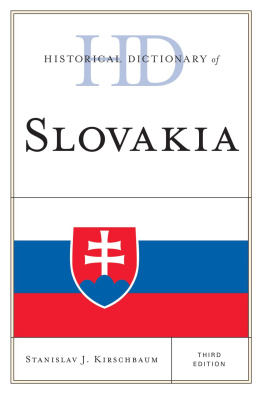
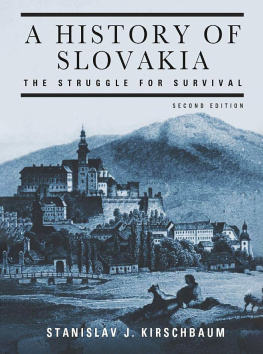
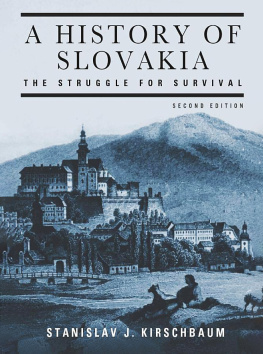

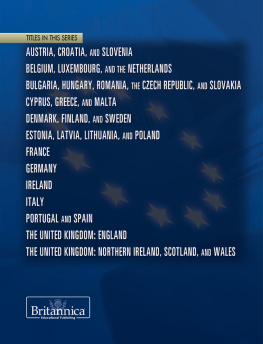
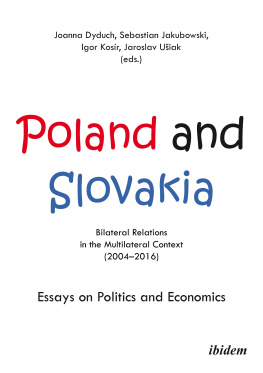
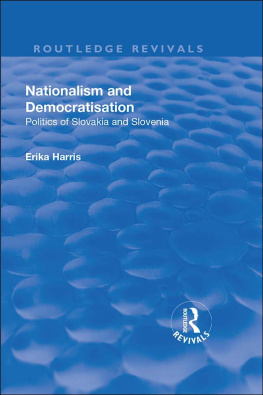
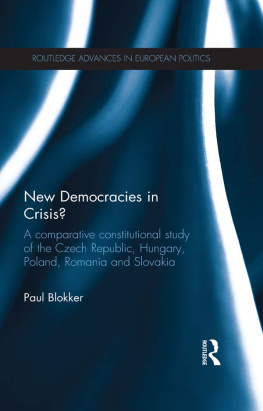
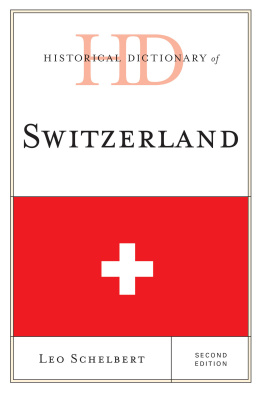
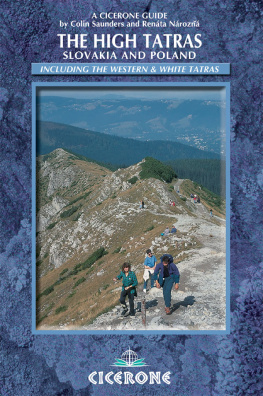


 The paper used in this publication meets the minimum requirements of American National Standard for Information Sciences Permanence of Paper for Printed Library Materials, ANSI/NISO Z39.48-1992.
The paper used in this publication meets the minimum requirements of American National Standard for Information Sciences Permanence of Paper for Printed Library Materials, ANSI/NISO Z39.48-1992.